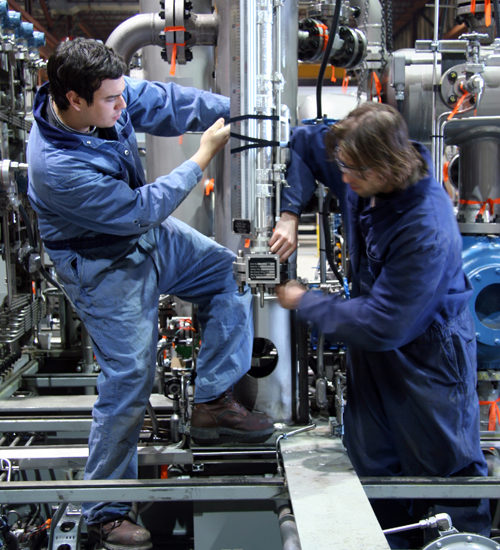- January 11, 2017
- Posted by: David Marshall
- Category: Management

Hiring good people is becoming more and more of an issue for companies as the unemployment rate drops. And it’s becoming more difficult as recruiting services and hiring software have entered into the mix, because the résumés being submitted can be fairly unreliable.
Recruiters have a tendency to coach candidates on how to puff up their résumés in order to fit the position they know you’re looking to fill, but it doesn’t necessarily mean the candidate has those fundamental skillsets. They may have some of the experience, but not as much as you might be led to believe. It doesn’t mean the candidates lied, it just may mean they “put their thumb on the scale” a bit to tip it in their favor.

People often optimize their résumés to get past the hiring software filters, using the best trigger keywords, not necessarily the most accurate ones. That means the candidates who make it past the first obstacle are often those who know how to game the system, not those who are actually the best fit for the company.
To further compound the problem, it rarely falls to the hiring manager to be proficient enough in that job function to ask the right questions that will determine if the candidate is capable and knowledgeable enough to do the job.
For example, somebody applying for a materials manager position may have Materials Requirement Planning (MRP) certification, but have not have enough experience making the system actually work together. If the person you’re interviewing has never managed a large MRP system, that’s a problem once they get the job.
However, there’s no hiring software that can rule that person out, so they’ll slip through the cracks and into your company. He or she may have been a buyer in a prior life, which can make them a “qualified” candidate on paper, but you run a completely different system that requires completely different knowledge and skills. So it’s up to the hiring manager or supervisor to be able to spot that during the interview process, and wash them out.
Hiring Good People Sometimes Means Hiring “Unqualified” People
That also means finding the best candidate who can deliver the results you need, and not necessarily finding the one who matches the requirements you’ve established. This may mean forgoing some of the “usual” requirements for the job, and instead finding candidates who don’t fit the expected definition.
I recall one story of an executive at an international corporation who never had very much luck hiring good people from the pool sent to him via the HR department. He was looking for international salespeople, but the HR people were sending unqualified candidaes. Oh sure, they fit all the “usual” requirements — college degree, could type 45 words per minute, at least three years industry experience — except none of them were what the executive was looking for.
He needed people who spoke the language of their chosen territory, and had lived in that part of the world. Many of them had not completed, or even attended college, they weren’t from that industry, and several of them could not even type. (This was back in the ’80s, when that was a little more common.) The HR-approved candidates were always washouts, the executive-chosen candidates were nearly always a success.
The only way the executive could easily find those candidates was through introductions and referrals. He knew enough about the kinds of people he wanted, as well as the temperament it would take to function in their territories, so he was able to quickly identify and hire the best people for the job.
In the end, hiring the wrong person can be a doubly costly mistake. You spend a lot of time finding a candidate to cover certain responsibilities and functions. But hiring the wrong person not only means you’ve wasted all that time and energy, those functions are still not being performed correctly.
And if you don’t have proficient managers or supervisors, those individuals have a tendency to be retained longer than is wise. That means this poor performance carries on until you have to terminate the person and repeat the entire process over again.
In the end, hiring good people means companies should hire slow and fire fast, making sure they get the best candidate into the job the first time, and then keeping them in place for as long as possible. Doing that not only saves money, but helps the company run at higher efficiency and productivity.
I’ve been a manufacturing executive, as well as a sales and marketing professional, for a few decades. Now I help companies turn around their own business. Please contact me to set up a short call to discuss your challenges.

